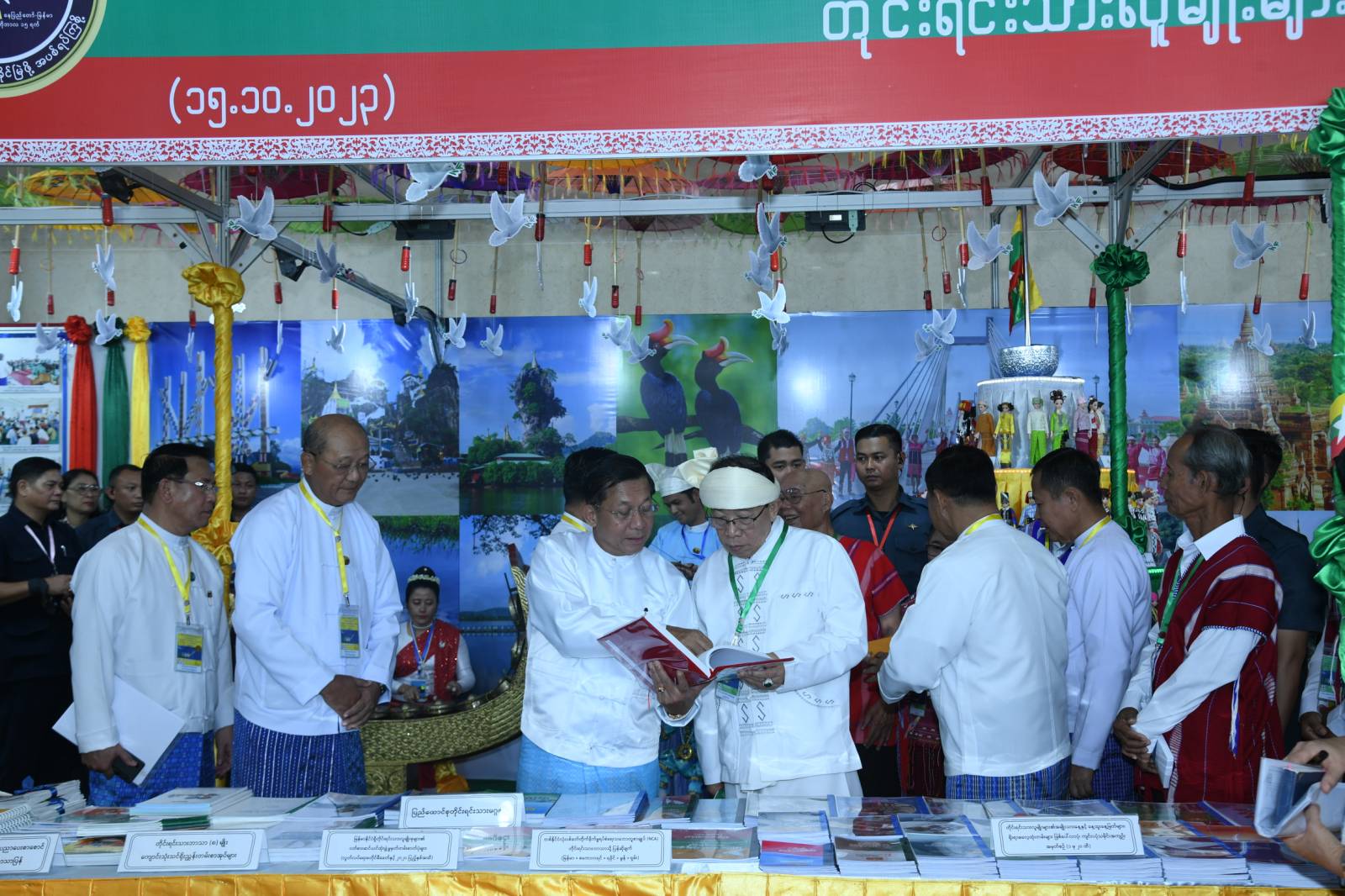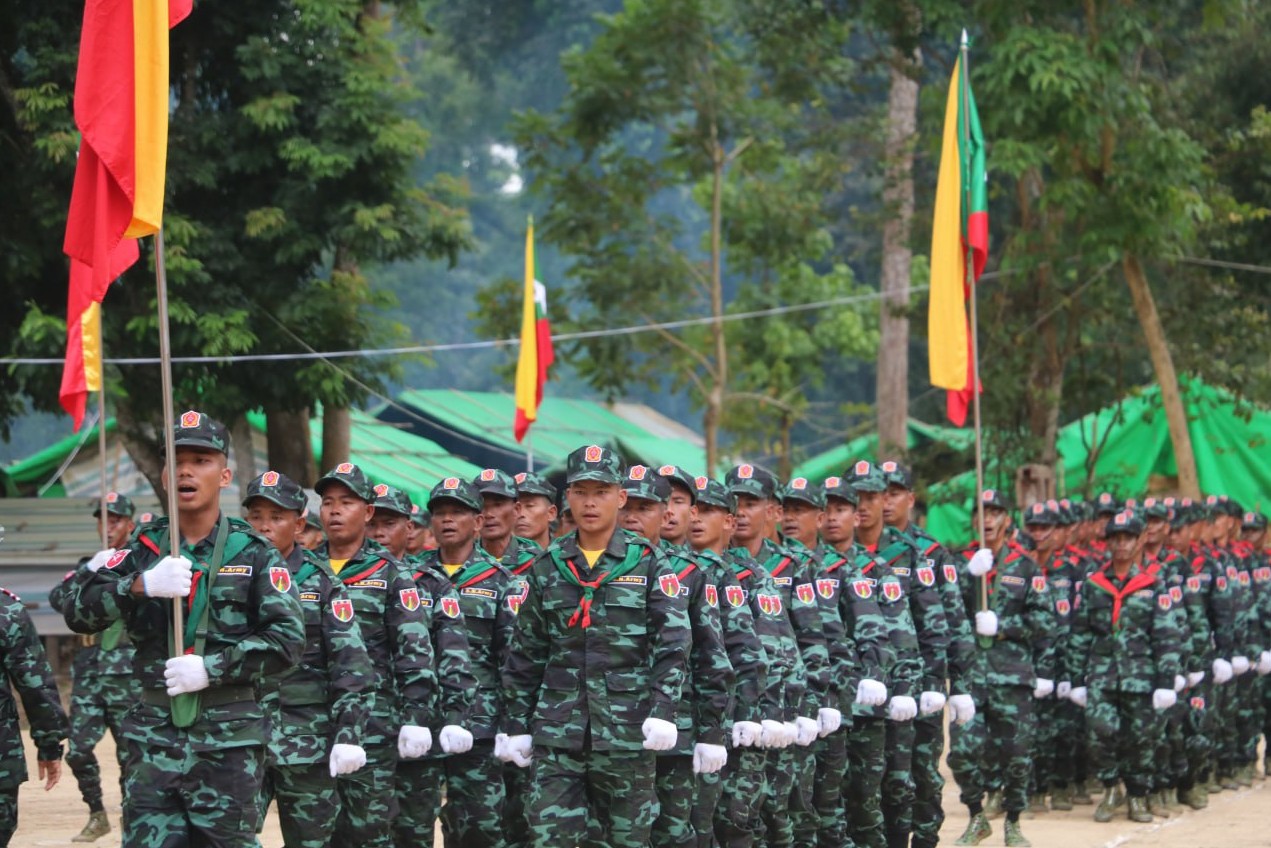CNI News
21 September 2025
After Myanmar’s political change in 2021, armed conflicts expanded and intensified across the country. Observers are now closely watching the political stance of the three Shan armed groups.
Shan State and Shan ethnic regions are rich in natural resources and home to many ethnic groups.
The three Shan armed groups are the Restoration Council of Shan State (RCSS), The Shan State Progress Party (SSPP), and The Shanni Nationalities Army (SNA).
Since 2021, these groups have neither allied with the Myanmar Tatmadaw nor joined revolutionary forces to fight, according to military and political analysts.
It might be because they fear the people’s suffering and the national crisis would be worsen, said U Khun Sai, a participant in the peace process, in an interview with CNI News.
“RCSS has firmly stood on the principle that political problems must be solved by political means, ever since it signed the bilateral ceasefire in 2011. That is still their main position. If they were to join in a certain side now, the situation could worsen instead of improving. The SSPP is part of the Federal Political Negotiation and Consultative Committee (FPNCC). The Wa (UWSA), which leads FPNCC, has also taken the position that the crisis should be resolved politically rather than militarily, and SSPP follows this line. Not long ago, when I met some of their leaders, they said: ‘What would change if we fought? The people would only suffer more. They are already facing so much hardship, and if we fought, it could become even worse. We see that. So, we are waiting for opportunities to resolve the situation peacefully.’”, he said.

General Yawd Serk with Senior General Min Aung Hlaing
RCSS leaders frequently attended talks in Nay Pyi Taw with Senior General Min Aung Hlaing during the SAC era, and RCSS leader General Yawd Serk was even awarded the honorary title “Wunna Kyawhtin” in 2022.
The SSPP, meanwhile, is a member of the FPNCC, an alliance of armed groups led by the United Wa State Army (UWSA).
However, clashes sometimes occur between these groups and the Myanmar Tatmadaw. Skirmishes also break out between RCSS and SSPP forces, while battles occasionally break out between the SNA and the KIA-PDF allied forces.
Sai Htay Aung, Chairman of the Shanni Nationalities Development Party (TNDP), told CNI News that the three groups are acting based on what they see as right and wrong for the Shan cause:

The SNA troops
“It’s complicated. But in my view, the three groups (RCSS, SSPP, SNA) have decided for themselves what is right and wrong for the Union. For example, the SNA used to clash with the Myanmar Tatmadaw, but since after 2021, they have become quite close.
Meanwhile, SSPP and RCSS don’t really interact with each other, though they may have some internal dealings. They all look at the Shan cause and make their own judgment of who is right or wrong. That’s why they remain in this position. There may well be behind-the-scenes links, of course.”, he said.
In August this year, SSPP leaders, along with TNLA and MNDAA, went to Panghsang at the invitation of the UWSA.
At that meeting, the Wa informed their allied armed groups that they would not be providing any weapons or financial assistance to facilitate military operations.




